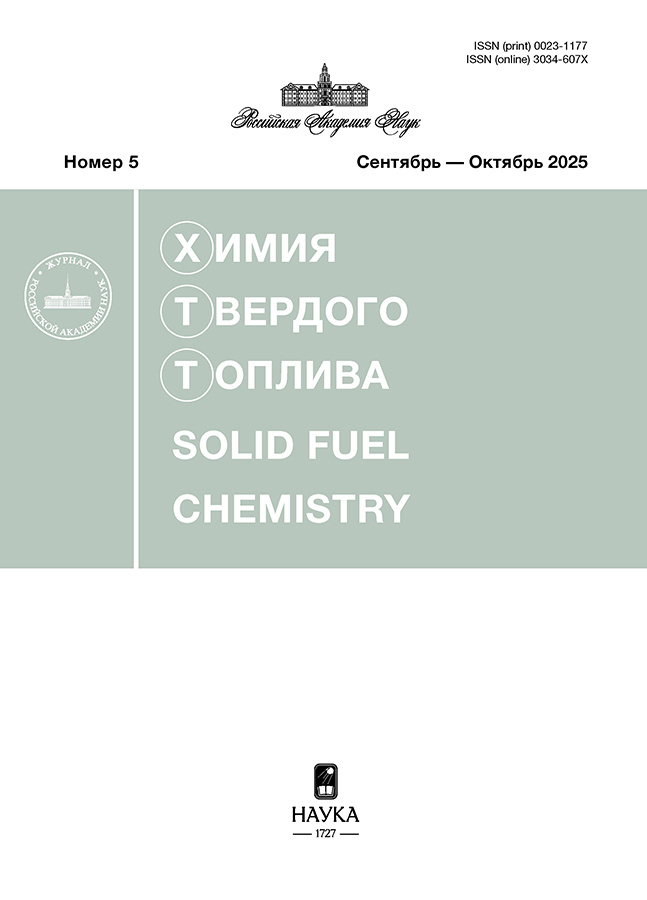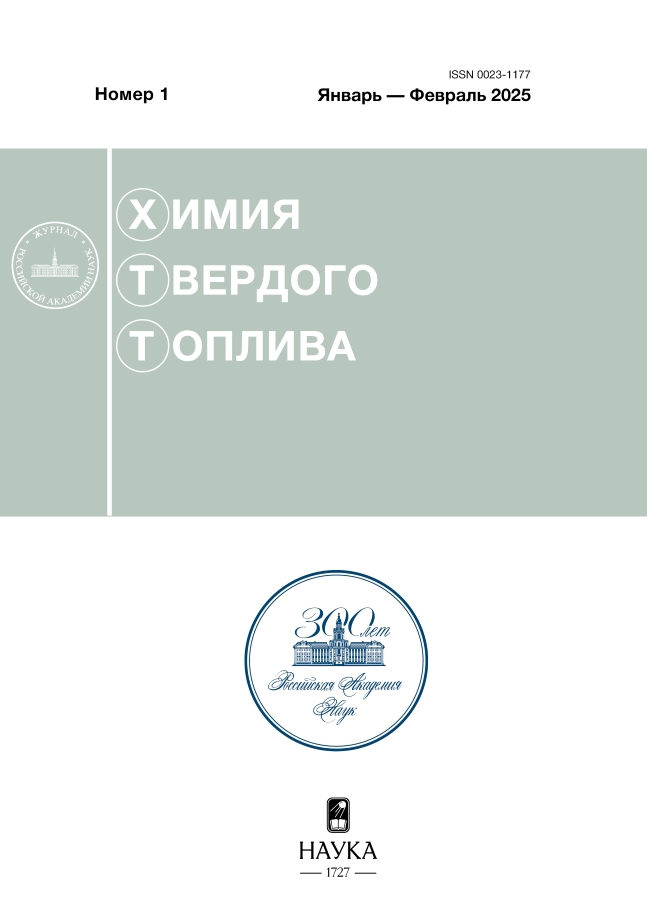Влияние условий ультразвуковой обработки на свойства водонефтяных эмульсий
- Авторы: Волкова Г.И.1, Смирнова Е.Ю.1
-
Учреждения:
- ФГБУН Институт химии нефти СО РАН
- Выпуск: № 1 (2025)
- Страницы: 49-58
- Раздел: Статьи
- URL: https://bulletin.ssaa.ru/0023-1177/article/view/684050
- DOI: https://doi.org/10.31857/S0023117725010074
- EDN: https://elibrary.ru/KTTGAQ
- ID: 684050
Цитировать
Полный текст
Аннотация
Исследовано влияние режимов ультразвуковой обработки на микроструктуру и структурно-реологические свойства эмульсий нефтей с дистиллированной и пластовой водами. Эмульсии обрабатывали в ультразвуковом поле (частота 22 кГц, интенсивность 2, 6 и 18 Вт/см2). Микроструктуру эмульсий изучали с использованием оптического микроскопа AXIO LAB.A1 (Carl Zeiss, Германия). Проведен дисперсионный анализ микрофотографий эмульсий и выявлено влияние условий обработки, типа дисперсной фазы на средний размер частиц, дисперсность и положение максимума распределения капель воды в эмульсии по размерам. Реологические параметры эмульсий до и после ультразвуковой обработки изучали с использованием ротационного вискозиметра HAAKE Viscotester iQ (ThermoScientific, США). Для высоковязкой нефти с высоким содержанием смолисто-асфальтеновых компонентов после УЗО в импульсном режиме при интенсивности поля 6 Вт/см2 и 2 режимах (5 циклов с 10 с работы и 10 с покоя; 10 циклов с 5 с работы и 5 с покоя) наблюдается снижение степени дисперсности капель воды.
Полный текст
Об авторах
Г. И. Волкова
ФГБУН Институт химии нефти СО РАН
Автор, ответственный за переписку.
Email: galivvol@yandex.ru
Россия, 634055 Томск
Е. Ю. Смирнова
ФГБУН Институт химии нефти СО РАН
Email: smirnova.chemtsu@gmail.com
Россия, 634055 Томск
Список литературы
- Голых Р.Н., Минаков В.Д. // Южно-сибирский научный вестник. 2023. № 1 (47). С. 61-6. [Yuzhno-sibirskij nauchnyj vestnik, 2023, no. 1 (47), p. 61]. https://doi.org/10.25699/SSSB.2023.47.1.001
- Голых Р.Н., Боброва Г.А., Хмелев В.Н., Барсуков Р.В., Генне Д.В., Абраменко Д.С., Шакура В.А., Титов Г.А., Ильченко Е.В. // Южно-Сибирский научный вестник. 2020. № 2. С. 57. [Yuzhno-sibirskij nauchnyj vestnik, 2020, no. 2, p. 57].
- Xie W., Li R., Lu X. // Ultrason Sonochem. 2015. Sep 26. P. 136. http://dx.doi.org/10.1016/j.ultsonch.2015.03.004.
- Хмелев В.Н., Сливин А.Н., Барсуков Р.В., Цыганок С.Н., Шалунов А.В. Применение ультразвука высокой интенсивности в промышленности. Бийск: Изд-во Алт. гос. техн. ун-та, 2010. 203 c.
- Хмелев В.Н., Барсуков Р.В., Леонов Г.В., Ильченко Е.В. // XV Международная конференция-семинар молодых специалистов по микро- и нанотехнологиям и электронным устройствам EDM’ 2014. 2014. P. 217.
- Атхлей А.А., Атчли А.А., Фриззелл Л.А., Апфель Р.Е., Холланд К.К., Маданшетти С., Рой Р.А. // Ультразвук. 1988. Том 26. Выпуск 5. С. 280. [Ul’trazvuk., 1988, no. 5, p. 280].
- Лекомцев А.В., Мордвинов В.А., Дворецкас Р.В., Степаненко И.Б., Баканеев В.С., Силичев М.А., Корнилов К.В. //Известия Томского политехнического университета. Инжиниринг георесурсов. 2021. Т. 332. № 5. С. 101. [Izvestiya Tomskogo politekhnicheskogo universiteta. Inzhiniring georesursov., 2021, V. 332, no. 5, p. 101] https://doi.org/10.18799/24131830/2021/05/3189
- Хмелев В.Н., Голых Р.Н., Хмелев М.В., Шакура В.А., Шалунов А.В., Барсуков Р.В. // Южно-Сибирский научный вестник. 2017. № 3. С. 15. [Yuzhno-sibirskij nauchnyj vestnik, 2017, no. 3, p. 15].
- Гаврилова Н.Н., Назаров В.В., Яровая О.В. Микроскопические методы определения размеров частиц дисперсных материалов. М.: РХТУ им. Менделеева, 2012. 52 с.
- Морозова А.В., Волкова Г.И. // Химия в интересах устойчивого развития. 2020. № 28. С. 508. https://doi.org/10.15372/KhUR20202570/ [Chemistry for Sustainable Development, 2020, V. 28, p. 494. https://doi.org/10.15372/CSD20202570].
Дополнительные файлы




















